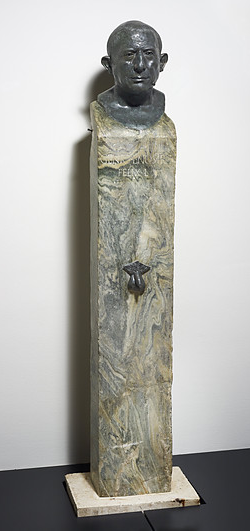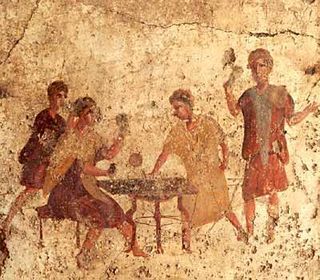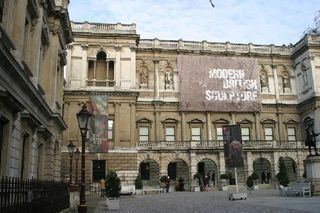Mary Beard's Blog, page 45
May 10, 2013
"Why did Mary Beard stoop to writing about shoes" -- & in the Daily Mail to boot?
Earlier in the week, as some of you will have spotted, I wrote an article about why I like shoes in the Daily Mail. The reactions to this piece, largely on twitter, were varied, colourful -- and took every side of the issue you could imagine. What was especially nice for me (who has known very different style objections in the past) was that almost every comment was as polite and good-humoured as it was forceful and uncompromising. In fact, I could imagine myself on another day making even the most negative comments that were raised against me. The web at its best, I thought.
The only exception was a guy (I assume, a guy) left over from the Dont Start Me Off website, who observed: "What a career boost outside of the world of history you have had Mary, all thanks to some "vile misogynists"" (Career boost?? Article on shoes in the Mail?); apart from that about the worst was an early morning tweet from an ex-Cambridge student (female) who complained: "Morning Daily Mail fix utterly ruined by Mary Beard chiming on about how much she loves shoes". (I dont THINK it was meant to be supportive?)
Apart from that many comments included those who thought the whole thing was hugely engaging ("such fun to learn about your love of shoes! Surely Mercury's footwear the original Roman 'it shoe'?") or enticing (@wmarybeard has made me want to buy shoes!! said one; 'I loved to read this: M Beard says there's nothing like a new pair of shoes" insisted another). Others (fewer overall, but still a significant minority) were not impressed. What was I doing writing about SHOES and in the Daily Mail to boot. As my not caring what you look like" is actually another way of "caring what you look like"). The point about shoes for me is the sheer capacity for fun they bring, no matter how old or what shape you are. It's not about fear, or fitting (in). It's fun. Hence my little paean to Jimmy Choo espadrilles.
But why in a newspaper? And why the Mail? Please don't imagine that I sit at my desk reading about Roman demography (as I am at this minute), then suddenly get bored, so decide to pitch an article on Jimmy Choo to the Mail. In this case, for reasons that must be as baffling to most of the rest of the planet as they are to me, there has been a recent minor journalistic interest in my footwear (shouldn't have worn my hi-tops to that London party....). And I have learned from bitter experience that if someone is going to write an article about you, you would be much better off writing it yourself. You dont get complete control, but you get a lot more say about what goes in. (I could give you examples...)
So in this case I had just a few basic desiderata, which I feel I -- sort of -- achieved. I wanted it to be clearly light hearted (and I do confess that at the Mail we all had the most hilarious and enjoyable hour and a half when I tried on heels that I could never walk on, and took the piss unreservedly). I also wanted to make the basic feminist point (which I did) that high heels are a way of keeping women down -- the modern equivalent of the crinoline. And I wanted to bring in the Romans (which again I did).
OK, you can't control the headlines (Sex Goddess??), the captions (let me say now -- THOSE ARENT ALL MY SHOES -- in that picture), nor some of the adjectives. And, of course, I see why it makes some people fume (politely), and why I might in other circumstances have said the same. But in the end I feel more than OK about it. I said some of the things I wanted to say in a unexpected location (and, yes, I would do it again).
And when I got this tweet, I cheered:
"I teach Latin to 11-14 year old girls. Today I shared your shoe article in class; the students LOVED it!"
I think anyone in my position would cheer. After all, you get to different people, of different ages, in different ways. Who could not want that?
May 8, 2013
Were the ancient Pompeians just like us?
The current Pompeii-and-Herculaneum exhibition at the British Museum treads a very careful path between the immediately approachable familiarity of the ancient city and its strange distance from us.
On the one hand, there are all kinds of things about the ancient town that we can still recognise -- the chamber pots, the taps, the bread that (if it weren't actually carbonised) you could pick up and eat out of the oven. On the other hand, as the catalogue makes clear, the context is utterly destabilizing. It's partly the omnipresent slavery (men and women who didnt really count -- or counted so little that you could have sex in front of them and not even notice they were there). But then it's also the puzzling structures of domestic life and the organisation of the ancient "home". There are all those rooms we call "cubicula", so often transated "bedrooms" -- but they are not "bedrooms" in our sense at all. These might be places you went to lie down on a couch, but also to entertain your intimate friends and do the most important business you had on your hands (a sort of inner office). So hardly "bedroom" -- and indeed the truth is we dont really know where most Romans actually slept anyway.
So far so good.
 But it's pretty clear from the press reports -- and from such visitor reactions that I've witnessed -- that one half of that balance has tended to be forgotten in the excitement about the show. Most accounts have bought entrely into the "oh my goodness, they're just like us" side of the story, and to reaching out across the centuries -- and finding a life style that is reassuringly familar.
But it's pretty clear from the press reports -- and from such visitor reactions that I've witnessed -- that one half of that balance has tended to be forgotten in the excitement about the show. Most accounts have bought entrely into the "oh my goodness, they're just like us" side of the story, and to reaching out across the centuries -- and finding a life style that is reassuringly familar.
The problem is, of course, that in one way that's right... there are cradles and jewels and cosmetics etc in the show that we feel we could almost pick up and use. And I've spent quite a lot of my life saying exactly that. But that only makes sense in the context of all the unfamiliar aspects too. And I'd urge anyone going to the BM to keep their eyes open for the strange and not just go a bit goo-ey about that charming wooden Roman cradle (it's easy enough, I've goo-ed with the best, and sincerely too, about that particular piece of furniture ).
(it's easy enough, I've goo-ed with the best, and sincerely too, about that particular piece of furniture ).
The sex is an easy place to start; because -- however we decide to interpret the famous marble Pan fucking the marble goat -- we can instantly see that it not something that fits easily into a modern garden. But in a way as I saw yesterday, one famous portrait statue is a good marker of the combination of the famiar and the oddly foreign. I'm thinking of the warts and all bronze image of the man who may be L Caecilius Iucundus, the Pompeian banker, famous from the Cambridge Latin Course. If you crop the picture at the top and just show the head, it's a wonderfully "modern". image. But look below. The realistic head was originally plonked on the top of a plain, squared marble shaft, about 5 foot tall. And in the middle, at about the right place, was stuck a bronze willy etc.
An image that seems totally familiar of you carefully "excerpt" it, looks decidedly unfamiliar if you see it whole.
So my little campaign, I suppose, is to get people to rediscover the strange in Pompeii and its wonderful exhibition.
May 4, 2013
Sex in the (19)70s
Over the last year or so, there has been a lot of stuff talked (in the context of Jimmy Savile et al) about how different the sexual culture was in the 1970s from now. And what that might mean for how we "judge" it all. It sure was different; but not exactly in the ways that are usually bandied about. I have no doubt that a lot of people had, and have, conflicting views about how it "really" used to be .. but, in a bit of a nutshell (too short, too simple) here are mine, clouded with false memory no doubt. I was between age 15 and 25 in the 70s.
First, let's be clear, no bits of mainstream popular youth culture were advocating sex with children. It's true that in my recollection there was a debate about where the "age of consent" should be set (13, 14, 15 16...?)...but 10 years old (lets say) was never in the frame. The idea, as some reports are insinuating, that child sex was all part of part of "hippy culture" (a culture that most of us did not anyway see much of) is bonkers.
But bonkers also is the idea that the conventional, traditional rules of sexuality somehow hadn't been invented then. Of course they had been.... The point is that youth culture was gunning for them, and trying to overthrow them.
Most of that gunning was done -- as always -- in our heads, with no practical experience attached (let's be honest). But all the same we were gunning. We were part we thought (or I thought) of a revolution.
That's fairly clear -- or the strange paradoxes are -- with ideas of marriage. Let me say here and now (before I get the emails) that I am totally in favour of gay marriage; if people want to be part of the institution let them be, and I can see why. But when I was a kid, marriage was an institution of oppression that we actually wanted to tear down... not open up to groups lucky enough (as we would have seen it then) to be excluded from it. So the present campaigns have made me rethink...but also to wrily historicize.
As for sex itself, we thought in the 70s that we were radicalising it, democratising and spreading it (with thanks to the first generation of reliable contraception). Yes, that meant the idea of sex with unlikely people, in unlikely places (the office, the library, the park, the train...), across all kinds of "barriers" (age, gender and otherwise). As I have said for most of us it was an IDEA and no more, but it still meant something. (This sense of radical sex in the head is brilliantly captured if you're interested by Robert Irwin's brilliant memoir)
In retrospect, I can see that we were both right and wrong. We did free things up that made sex better (or less policed, or less guilt ridden) for people. We were also naive in imagining (as is now being made clear to us) that somehow our own ideas of sexual freedom, of zipless fucks, or whatever, could transcend all the usual institutions of power, hierarchy and sexual control. We thought we could do that, and it was a nice try... but we couldn't and didn't.
So if there was a culture in the 1970, in the BBC or anywhere (and the BBC can only have been one place... try universities for another), of sexual "freedom", some of it was clearly criminally wrong (and it always was), some of it we can now see was exploitative, and some of it was trying to make a difference...I think we can all recognise the first; it's a bit harder( to be honest) to agree quite so unequivocally about what distinguishes the second and third categories.
But that's what we need to think carefully about before making a judgement EITHER way.
April 30, 2013
Pompeii -- for the hard, and not so hard, of hearing
This is a recantation.
I did the first of our British Museum gigs for the Pompeii show on Friday (a discussion with Robert Harris -- more below). In the run up to the event I had been asked to give all kinds of information (spellings etc) to help the person who was doing the running sub-titling for deaf people.
I did this with enthusiasm, but I should confess -- I guess -- that I have generally thought that these gestures to the hard of hearing were really more gestures than useful or real. As I've said before on this blog, I've always suspected that a tick-box culture was at work in many of the initiatives for the disabled.
By that I mean that when we have put an automatic door-opener on the front door of the Faculty, we imagine we have done our bit ... when actually we should be looking out, much more widely, for how we make things work for those who cant open the doors.
So far, so cynical.
But last Friday night was an eye-opener for me (an ear opener you might say).
Robert Harris was great as an "introducer" to Pompeii. We talked about the taps and the water supply and how you might think about the Romans as engineers, in a way that made a difference to how people really lived (not just grand aqueducts, but garden fountains etc.)
It will all be online soon. But the fun was going backwards and forwards between the familiarity of "tap culture" and the wildly different priorities the Romans had about water .. display fountains versus service infrastructure.
What in the end struck me was the impact of the subtitling (which I had always thought a bit of a gesture). I was wrong. Out of 320 in the audience, 35 used the subtitling -- that's more tha 10% of the audience,.
I met many of that 10% after the discussion, and they were all spot on (to my shame). They rightly pointed out that my Meet the Romans DVD did not have subtitles, so was useless to those who couldnt hear. I had never thought of that before. But I have now and I feel a bit humbled. (And I have passed it on!)
(There is a great account of the BM occasion here.)
April 27, 2013
The runners and riders in our local elections.
Since the Iraq War I have been a semi-floating voter. Up to then I had been Labour by default (unless tactics demanded -- as they sometimes did in Shropshire -- that one put one's cross by what was back then still the Liberal Party). Since then I've looked afresh at each election for someone, somewhere on the left, the less Blairite the better.
This time at the up-coming County Council elections, my mind was made up for me rather early on. The excellent Belinda Brooks-Gordon, the sitting Lib-Dem councillor for Castle Ward, turned up on the doorstep asking if I would sign her nomination papers. She's, actually, done a great job on the Council and shows every sign of going on in the same style -- so I was happy to put my name to her form.
Now I suppose there is nothing to stop you nominating one candidate and voting for another, but would seem a bit perverse -- so with my vote now pledged to Belinda, I looked at the other candidates with more academic detachment, and also hoping that I wouldn't discover that I had made a grave error.
I didn't.
There are 5 candidates. We've had nothing through the door from the Tory so far, which I guess means they dont think he has an earthly chance of taking the seat. And when I tracked down his online manifesto I wasnt much the wiser.
A leaflet has come from the Labour candidate, Ed Carlsson-Browne -- but not persuasive enough to make one regret the way one's vote has been promised. "These elections matter a great deal to people living in Castle" was his bland headline quote -- fair enough,I guess, but what difference was young Ed going to make, we wondered. "As your councillor Edward would be an active voice for Castle. He'd work to cut congestion on major transport arteries like Huntingdon Road and Histon Road and to make these routes safer for pedestrians, cyclist and motorists alike". "Great" said the husband, "but HOW exactly?" (Or to put it another way, where's the candidate pledging to make the Huntingdon Road more dangerous?)
Rather more appealing has been the campaign of John Hipkin, a local stalwart who fell out with the Lib Dems a few years back and is now standing as an independent. But he's already on the city council and -- while I know that city and county have different remits -- it seems to me that one council should be enough for anyone.
That just leaves UKIP, with the prize for the most unmissable -- yellow and purple -- through-the-door leaflet. "Massive threat to our local services" is its predictable banner headline, with the spectre not only of Romanians and Bulgarians rushing to leafy Castle ward, but Cypriots, Greeks, Spaniards, Portugese and Italians threaten to become "immigrants" too. On the other side of the leaflet, things get rather more optimistic: we are told not to worry about climate change as "there has been no global warming in the last ten years".
More puzzling though was pledge about local government: "The three main parties not only choose their candidates, they tell them how to vote too. UKIP Councillords are independent . . . their votes are not directed by local political leaders". "Sounds like you'd be voting for a franchise" observed the husband.
I haven't yet been able to discover much on the web about the UKIP candidate, Nicholas Wilson -- but he's another one who, when he's not stirring up anxieties or offering false reassurance, trades in unconvertible platitudes: he "has a keen interest in ensuring that Cambridge is not ruined by misguided overdevelopment".
I may be counter-suggestible, but if I wasnt voting for Belinda, this stuff makes me want to go and vote for anyone who was backing misguided over-development (and/or more fatalities on the Huntingdon Road).
April 23, 2013
Who should review what book?
I am an inveterate reader "below the line" on newspaper websites -- especially "below the line" under anything I have written. I know that sensible people always say "dont read what people say online about your articles . . . there's too much venom and madness, better not to know". Maybe I'm just too curious. But I cant help WANTING to know what people bother to post in reaction to what I've written. .
And I often can't resist replying, if only to put the record straight. Last week I had a review in the Guardian of Jay Griffiths's book Kith -- a "popular", and frankly slightly eccentric, book about how we have come to over-protect our kids. The book was launched from the 2007 UNICEF survey which rated the happiness of UK kids as about the lowest of the developed world. Actually the latest survey a couple ofweek ago suggested that the UK was now doing a bit better.
One below-the-line commenter wondered why I hadnt mentioned that. Fair point.
The fact was that I had written the review weeks before the second report came out; and I belatedly tried to add a sentence to reflect that, but it didnt meet the cut.
But the next thing I noticed below-the-line was a slightly angry comment about why I -- a professor of Classics -- was reviewing a book about kids and childcare. What knowledge and expertises did I have?
My instant reaction was to say.. err, hang on, I did a long while ago write a book about childcare.
That was the wrong response I think. I should have said that popular books about how we bring up kids should be judged by those with time to think about the claims -- and not necessarily, or only, by those with professional expertise in child-rearing. Most parents -- and indeed non parents -- have a useful input on the question of how we bring up the young; and most reasonably smart people can look at the logic of an argument and see where it doesn't work. Whether we have written a book on childcare is neither here nor there.
It reminds me of what I learned in my first few months at the TLS, donkeys years ago. That is, dont send the book by one of the the two world experts on Valerius Flaccus to the other world expert. The chances are that you will get a minute argument about some cruces in the poetry, but you wont engage most people in the rest of the world.
So should any old amateur have their say? Surely not. But the bottom line is that you do want a smart reviewer who will know when they are being spun crap, and will say so. And a lot of that is about logic, not specialist expertise.
With my editorial hat, I'm looking for reviewers who will use their head fearlessly to dissect the argument.
And the truth is that you worry more about the reviewer having the wool pulled over their eyes than that they will be needlessly nasty. So it was with Robert Hughes' book on Rome: an excellent author, and well reviewed by many, but only spotted by a few.
The bottom line is that reviewers should be efficient gate-keepers, whether they actually LIKE the book or not,
April 18, 2013
Does the modern world move quicker?
When I was working on Jane Harrison and reading her letters from the end of the nineteenth century, I was struck by how often the post was collected and delivered then: three or four times a day. Harrison would put an invitation to dinner in the post in the morning and have the answer by mid afternoon.
And it struck me that communication wasnt always any quicker now. OK, electronic assistance helps, and sometimes one can exchange ten emails in as many minutes. But when it come to getting a package from A to B within the UK, you can still be stuck at an even slower delivery rate than 100 or for matter 20 years ago -- as I've just discovered.
I am, let me confess (and you'll hear more later), making another little tv offering in Italy, and I needed to get a matching top for the Toast loopback sweater tunic (Black, size 14) that I intend to wear on screen -- so I wasn't committed to recycling the same one all the time. I'd rather assumed that I would be able to pick an extra one up at Toast in Islington, but they only had blue in size 14. So stuck in London on Thursday, I asked the husband to order one online by the quickest delivery possible. We were leaving on Sunday -- and it seemed to me that something ordered on Thursday afternoon, at £8.95 shipping, really ought to get to Cambridge by Saturday.
(To be fair to Toast, I hadnt read the small print)
By Saturday morning, having travelled from Bristol to Castle Donington, the sweater tunic had arrived in the DHL Cambridge delivery office (which is of course not in Cambridge, but in Papworth Everard), so I rang up to find that it would not be delivered (as no one had asked for a Saturday delivery -- I didnt actually have the option!), but that the office was open. So I beetled round to pick it up, confident that at rather considerable effort the problem had been solved.
No such luck. The damn thing had presumably arrived, but they don't sort the mail on a Saturday! Only two of them there said the slightly fierce lady...it will be delivered on Monday.
At this point I reflected that if the husband had perhaps been able to do the old fashioned thing and phone up, and if it had been actioned fairly speedily and put in the first class post on Friday morning, there is every reason to hope that it would have arrived by Saturday, probably cheaper.
Ironically, there was another parcel I wanted to take to Italy with me, also languishing unsorted in the DHL office; this time an old book. It's a nice late nineteeth century archaeological text, not available so far as I could see in the UK except as Print on Demand. So I started, in reasonable time, that way. Don't! You might be able to read the text, but PoD had turned the pictures into a gloomy fudge. For my purposes a waste of money.
When that didn't work out, I was pushed. I found a copy of the book in a second hand shop in Michigan, but they didn't do express courier delivery, but agreed that if I arranged the courier my end they would pack it up and give it to the collector. This meant opening a DHL account (done, I have to say, very speedily and efficiently: thank you Bobby at DHL!), and then requesting an import.
Now I realise that at this point the Jane Harrison comparison breaks down rather. If she had wanted a book from America, she'd have been waiting weeks. But all the same, once it had zoomed across the Atlantic, leaving Michigan on Thursday morning, going via Cincinnati to dear old Castle Donington, and then by the same truck to Cambridge as my other one ... you'd have thought they might have had staff to sort it!
For this one, I guess I COULD have ticked the box for Saturday delivery, which presumably would have given it fast-track sorting -- but I'm a bit new to this game. Will learn for next time.
(The postscript is that both these articles were brought out to Italy be a friend coming a few days later.. a more old fashioned form of delivery!)
April 17, 2013
Starting a new course
I am just about to launch -- with a colleague -- a new Part II (final year) course for the history strand of Cambridge Classics (a "C2" course for you Cam classicists). I suspect students have very little idea what kind of work goes into getting a course off the ground and on offer. Maybe in the old days you'd say, in an old-fashioned Cambridge type of way, "I think I might give 'em a course on the Severans, next year", and everyone would nod wisely and leave you to it.
It's not like that now. You have to construct the more or less full course, months or years in advance, for approval by your "caucus" or subject group, by the Teaching Committee and the Faculty Board. You have to lay out aims and objectives and a schedule of lectures, you have to give a specimen exam paper (no specimen answers but I'll sure that will come), and you have to explain who will actually do the essay supervision work for the course. Some of this is a hugely good idea. It's no good launching a popular course if you havent got the foggiest clue who is going to do the supervision and small group work (and it's usually a good idea if it's NOT you doing that -- so the students get some diverse views or different perspectives).
On the other hand, my sense after more than 30 years university teaching now, is that advanced students actually thrive if there are a few loose ends. The more expertly packaged you have everything, the more they tend to follow what appears to be the party line -- and they tend to do well but not VERY well; fewer 2.2s and fewer firsts. That's partly because a bit of "throwing in the deep end" (... what do YOU think this course is all about) really does get them to get their noses into a bit of independent work.
Anyway we are launching a Part II course in "Popular culture in the Roman World", and it will be one quarter of a year's work. We're reckoning on 16 one hour lectures over a term, plus 4 two-hour classes, so that we can inject some discussion in and look at some evidence close up. The idea is to get students to think about what we can know about Roman life below the level of the elite, not just (or even mainly) in terms of housing, employment or economics -- but in terms of culture and ideology. Was there as distinctive culture among the relatively poor, a distinctive sense of humour and pastimes (NB the scene of gaming in the bar above), a distinctive attitude to life? And how would we know?
There's a great opportunity here to get students reading stuff that they wouldnt have come across much, if at all, before....from the "Roman Joke Book" to ancient proverbs, fables and popular fortune telling manuals.
One advantage of having two course organisers/lecturers is that you can get a bit of disagreement built into the lectures from the word go. I suspect that Jerry and I have rather different views on the subject of "popular culture" in general: with him thinking that it does exist separately from the cultural world of the elite. and with me being far less sure. So that's a good start.
Anyway Jerry came to dinner last week to discuss the programme of lectures we had drafted a few months ago and to try to work out exactly what the course be about. It is amazing how much you CANT get in to 16 lectures and 4 classes . . . we rather reluctantly decided that we could only glance at the Republic (which means not much from Plautus and Terence) and that we would want (and have) to include evidence from Roman Egypt (the kind of stuff that Peter Parsons discusses in City of the Sharp-Nosed Fish) -- but we couldn't make the whole course into a papyrological training ground.
It took the whole evening.... deciding, for example, that it would be best to do a class on fables rather than a lecture (as you really needed to get the student to discuss these apparently very simple, but actually rather tricky texts), and agreeing that they would need an introduction to how you might read ancient novels with our questions in mind, and that we had to face head on the issue of a distinctive slave culture (or rather the cultural intersections between slaves and the free poor).
It's funny, though, how even so you can forget things -- or forget to make them explicit (which in a course proposal amounts to much the same thing). The husband was vaguely overhearing our conversation and after a bit said words to the effect of, "So you are not going to mention any women in this course...".
The truth was that both of us were absolutely committed to thinking through the gender aspect of these issues, but we hadnt actually SAID SO. And maybe all those Faculty committees had assumed that too, because they hadnt actually said anything about the omission.
But aaaggh, how ignominious to look as if we were forgetting the Roman girls. Shows how useful a third individual pair of eyes (or ears) can be.
April 13, 2013
Losing your electronic ID
You may recall that in an earlier post I lamented my lost University card. I had then got back from picking up my Classical Association Prize and the bubble was appropriately burst by discovering that my Uni card was not in the place it belonged. I was still then hoping it would re-appear.
The point about this little piece of plastic is that it gives you access to almost everything you need in the Univerisity: I need it to get into my Faculty Library after normal working hours, to get through the archway that leads to my college room after 8.00pm; it gives me access to my college SCR, and to the Faculty coffee room, xerox machine, post etc after closing time; it lets me unto the University Library and allows me to borrow books; it is even what I need to get Emergency Out of Hours treatment by the University Dentist.
In fact the reason I lost the damn thing was that I was working in the Faculty Building after hours and needed it every time I went out of the Library to the loo or to my office and needed to get back in again . So I had it convenient (and conveniently losable) in my pocket, instead of in my bag.
Anyway it didnt turn up over the weekend, and then started the marathon of getting it replaced and so back into my life. Let me underline that absolutely everyone involved in this process bent over backwards to be helpful, and not a single person even hinted what they must quite reasonably have felt: namely that I was a silly old thing who had got herself into this mess by losing the card in the first place. I couldn't fault them (and Thank You). But all the same what a palaver to get your identity back.
It went something like this.
On Sunday night I went online to find out what to do in these circumstances. It was very clear that you had to go through your Faculty Card Representative, and not approach the Card Office yourself. So I sent an email to my Card Rep -- and received a Vacation Message saying that she was on a week's leave. Fair enough, but what was I to do now?
So I sent a "Please Help" message to both our Faculty administrators: from one I got another vacation message, but the other was in town... and got back to me on Monday morning, and as luck would have she had been a Card Rep in a previous Faculty, so knew the ropes.
By Tuesday morning she had heard back from the Card Office who said they could process the application and reissue a card instantly. That was good news, until a couple of hours later they discovered that the photo they had of me was more than 10 years old, so they had to have a new one. I could go down to the Card Office and get a photo taken, and then pick up the card. Trouble was I was just swamped with work and panicked at the thought that I might find myself at the back of a slow moving queue (and, more to the point, at the thought that in those circumstances I might behave worse than I would hope to). So the husband comes to the rescue and we send off a digital passport image that he had "on file". Meanwhile the Faculty had given me a temporary replacement card so that I could get into the Library after 5 o'clock.
The card arrives at the Faculty on Wednesday at midday, and I thought all was now over -- until I discovered that it wouldnt actually work until it had been "activated" at each of my relevant institutions. And that, for a start, needed the Computer Officer in Faculty, who was on a job elsewhere.
So I went home slightly despondent and sent him a begging email. The good news was that he could activate it remotely, and by Wednesday late afternoon I had a card that worked for my Faculty Building -- and that only left the College bit, and the UL to do.
OK this isn't exactly a tragic story: 5 days without a Uni card isn't one of life's greatest hardships (though, in mitigation, I plead that I had a shopping list of work from hell last week, and even an hour kept out of the library risked making the whole bloody house of cards fall down).
But it did make me think about this whole computerization of benefits onto a single system. I had problems with losing my computerised ID in a relatively small institution, where I have some clout, and where everyone was keen to help. Just imagine how that would be in some vast mega-system, when you're only a very little cog in the wheel. And anyway your problems might not be self-inflicted (like my card loss), but they might just come from some glitch in those electronic synapses.
Then you'll not kept away from your books -- you'll be literally without your money-to-live-on. I dont think I'd fancy relying on wholly computerised universal credit.
April 10, 2013
Lose some, win some: and looking forward to the Royal Academy
I have a proud little success to report, as you'll see if you read down. But, in case some of you regular readers, are getting fed up with Beard's honours loading this website, let me start with a good and proper FAILURE.
I have just failed to get a three-year funded stretch of research leave in the shape of a British Academy Wolfson Research Professorship. Well done to all who were successful, whoever you are! It's a brilliant scheme which gives the lucky winners (there are 4 in this current round) three years funding to pursue a project with a "public engagement" commitment). I was happy to get through to the long list stage -- with a proposal focussing on the writing up of my Mellon Lectures at the NGA in Washington on the representation of Roman emperors in Renaissance and later art (how much more "public engagement" can you get, I thought.. and the lectures themselves went down a storm I felt, even though I say it myself.. and opened up a real new subject...oh well).
Anyway, it was not to be. And I feel a bit rueful. For obvious reasons; but also because I know in my heart of hearts that, if I am going to do the next really good piece of research, I need a bit of serious THINKING TIME -- and that's the one thing I am certainly not getting right now. And I also need a real good excuse to turn a few gigs down which the Wolfson award would have given me. Bugger, bugger...
So why mention this? I cant imagine that there are too many tears out there ("lucky prof fails to get 3 years leave..." is hardly a sob story). But, as I've said, I think that I might need to undermine the idea that MB just goes from success to success! But I also think it's quite a good idea to share a bit of the downside of life as well as the up.
We're always taught to keep quiet about our failures and take it silently on the chin. But, actually, isnt it a good idea for everyone to know that even the apparently most successful people dont win all the prizes? Lets think about managing NOT MAKING it, as well as celebrating success. More of us, after all, lose rather than win! (Reminds me of the old puzzles about the Roman Rebublic --we all concentrate too much on those who got the consulship, we forget about those who were the near misses.)
Anyway, as if to make up for that, today I have been immensely cheered at beimg elected to the Professorship of Ancient Literature at the Royal Academy. I have been a fan of the RA for years, have written in their magazine, and co-curated an exhibtion there (loans from the Ny Carlsberg in Copenhagen some moons ago).
The Professorship of Ancient Literature was held by my friend Eric Handley, who died recently; and the Professorship of Ancient History is held by one of my heroes, John Boardman. And blimey, the first Prof of Ancient Literature was Samuel Johnson. So this will be fun and good. There are apparently no duties... but I have in mind to get a classical angle in there when I can.
And if anyone knows ... oh dear... how I might get a bit of real thinking time, do let me know,
Mary Beard's Blog
- Mary Beard's profile
- 4110 followers













